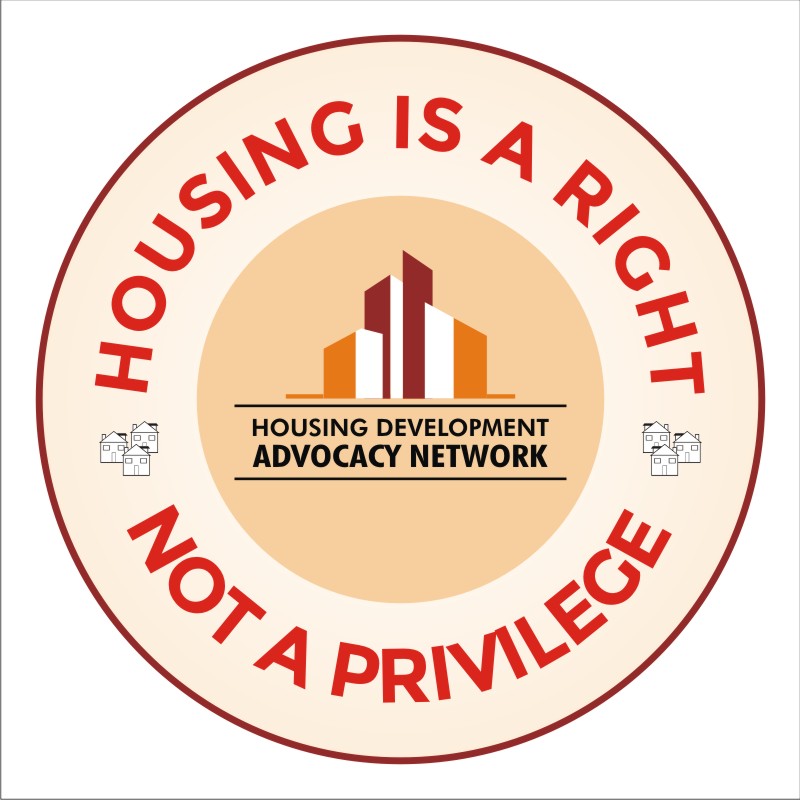What you require to watch out for in your brand-new rental contract.

Federica
When leasing an accommodation abroad, the most important thing you'll need to do is sign the rental contract, a vital document that legally holds you and the proprietor accountable and also secures you.
However, the often-complex terms and legal lingo utilized in lease agreements can be overwhelming. It's also possible that the contract remains in a different language when you're renting abroad. This is why it's important that you never enter into a verbal agreement with a property manager. Take your time to read and comprehend exactly what you remain in for.
To assist you out, this post will go into detail about what a rental contract should include. This will assist guarantee that there're no misconceptions in between you and your property owner. So, let's get going!
What remains in a rental agreement?
The rental contract is a legal document that includes important info concerning what the accommodation includes, your duties and rights, and potential penalties for late payments, early leave, or destruction of residential or commercial property.
A rental agreement might likewise be described as a rental agreement, tenancy arrangement, lease arrangement, etc.
Although rental contracts can rather vary from country to country, the majority of will contain and require similar elements:
- Basic details about the occupant( s).
- Contact information of the renter and the proprietor.
- Residential or commercial property description, including address, features, and stock (e.g. furniture or energies).
- Rental or contract period.
- Rent details, such as down payment, payment due date, and bank details.
- Your terms, responsibilities, and rights.
- Rules and terms for leasing the rental residential or commercial property.
- Clauses for ending or extending the agreement.
- Dictionary of terms and jargon
Some tenants, such as students, will likely require a guarantor who'll be legally responsible for payments and charges on behalf of the occupant. Some other optional provisions could consist of guidelines for having a pet, smoking, or running a freelancing business from your house.
Take a look at sample rental agreements in various languages.
Here're some things you should keep an eye out for in your rental agreement:
1. Note the type of rental contract you're signing
There're 2 types of rental contracts. If you're going to be staying for a particular time with a particular end date, you will typically sign a fixed-period agreement. If your strategies aren't set in stone, can sign or request an indefinite agreement.
Fixed-period rental agreements consist of:
- The end date of the rental agreement.
- No early agreement terminations.
- Penalties if the property manager concurs to end the agreement early.

Indefinite rental contracts include:
- No end date.
- The agreement might be terminated by the property owner if there are legal reasons.
- The time of notice need to be noted in your rental contract - typically in between 1 and 3 months.
2. Ensure all names are included
This may seem like a no-brainer to some, however landlords may notify you that only one name is required on the lease. However, this can result in all sorts of problems down the roadway.
Having one name on the rental agreement implies that this individual's name will be on the tax slips and utility expenses which they're exclusively accountable for all payments. Plus, if you have a falling out with among your roommates or they don't pay on time, you 'd have to pay from your pocket as legally, only you'll be accountable.
It's likewise likely that you'll get backdated tax slips or the final expenses for utilities after you vacate. Locating or holding old roomies accountable after the agreement has actually ended can be tricky. To avoid all this hassle, it's best if all names are on the lease.
3. Understand the rental payment terms
Payments need to be clearly defined in the rental agreement. Always examine that the rental contract offers a detailed breakdown of the amount, defines when you need to pay rent, and what the effects of late payments are.
Some contracts include energies, such as water, electrical power, and internet. Whereas, others might just consist of base rent. In some buildings, you may have access to features, such as a health club, or might require to pay an annual service cost on top of rent. So if you're in doubt, clarify these before signing the agreement to know precisely what you're entitled to.
4. Beware and budget plan for additional fees
You can expect a number of different expenses connected with relocating. When setting aside a budget, you might require to include:
Deposits

Many property managers will need that 1 or 2 months of lease be paid as a down payment. Don't worry, you'll get this back as soon as you move out, presuming you keep your room or apartment in the very same condition as you got it in, barring basic wear and tear.
Agency charges
If you decide to book through a company, you'll have to pay differing pricey fees. The reservation costs for housing platforms are typically more affordable.
Online platform charges
If you are using an online platform, you might require to pay to see listings, contact numerous landlords beyond the complimentary limit, and for any effective bookings. Generally, the charges will be stated in advance so that there aren't any surprises.
To conserve some costs, you could choose an all-inclusive housing platform, like HousingAnywhere, where you're only charged a booking charge which is 25% of the first month's lease.
5. Lease contract terms
A rental agreement will consist of information about what can and can not be done to the residential or commercial property. For example, if you're leasing an apartment or condo and are intending to hang art or paint the walls, be sure that your rental agreement permits this or you won't get your security deposit back.

Then there are typically other general restrictions, such as no smoking cigarettes or no family pets. If you desire any of these, make certain to contact the landlord before renting!
6. Take inventory of the lodging
Pay close attention to the stock list to know what includes your house. Anything not included in the rental contract is your obligation to fix or replace, not the landlords.
Don't presume that because something remains in your home, it's consisted of in the rent as in some cases previous occupants might leave furniture or devices. To avoid misconceptions, ask your landlord what is or isn't consisted of as big-ticket products like a cleaning machine can trigger a damage in your budget!
The greatest tip we can provide you is to photo and take a video of the whole room or apartment that you're leasing. As a backup, save the images and videos to the cloud and guarantee that a datestamp is noticeable on the file information.
You ought to also send a list of any damages you've discovered, consisting of visual proof, to the proprietor on the day that you move in. This will ensure the proprietor can not unnecessarily charge you for damages when you move out.
7. Restrictions on behaviour
Even though you will be making the house or space your new home, there'll be expectations when it comes to your behaviour. These guidelines are usually defined in the lease arrangement.
Some examples of rules include a no sound policy during certain hours, no family pets or cigarette smoking within your home, no cooking outside the kitchen area, etc. If not followed, it can be a cause for eviction.
8. What to get out of your rights and duties

The rental contract needs to information everything that is anticipated of you as an occupant, including your responsibilities in the arrangement. However, it should likewise include your rights as a renter, so that you know if what you're experiencing is within the premises of your lease contract.

Tenants' rights
- The residential or commercial property should be prepared and available at the start of the agreement.
- Housing must remain in a habitable condition.
- The residential or commercial property must be turned over and accepted face to face.
- Landlords should make any necessary repair work to the house or space.
- Must get an alert before the property manager enters the residential or commercial property.
- Must be given a factor to abandon and with sufficient time
Tenants' duties
- Must pay the agreed rental costs at the required time.
- Must follow all guidelines.
- Pay for any damages made to the residential or commercial property.
- Give a valid reason and advance notice to leave the residential or commercial property.
9. Rental agreement terms and lingo
Lastly, here's a convenient dictionary of a few of the most typical rental terms you'll stumble upon.
Tenant
The renter is the individual or group of people who will be leasing the residential or commercial property. The contract ought to contain the name of all tenants residing on the properties.
Landlord
A landlord is the specific, company or company from which a renter leases the residential or commercial property. They might likewise manage the residential or commercial property themselves, or provide a representative who will be the renter's contact for repairs, etc.
Lettings firm
A letting agency can be viewed as an ambassador between the proprietor and the renter. They can require fees for helping with documentation or for keeping the deposit throughout the rental.
Deposit
The deposit is an established amount of cash that the renter will supply to the property owner, who will either return the money or use it for any damages made to the residential or commercial property.
Inventory
The inventory will consist of a list of everything that is consisted of within the room or apartment or condo.
Premises
A property can include a home, a house, a parcel or anything else which can be defined as a location.
Notice duration
A notice period is a period of time that starts after you have actually notified the property owner, or vice versa, of your last day of the tenancy. This provides the property owner enough time to find a new tenant to replace you. Typically, a notification period requires to be 30 days and requires to be released before completion of the month.
Termination clause
These terms determine how the renter can break the lease or end the rental arrangement early.
Maintenance charges
This charge is an extra fee that the tenant(s) must pay, in addition to the rent. For example, if you have a garden, then a maintenance charge to keep the garden in good condition might be required by the occupant.
Sublet
Subletting an accommodation suggests that the original renter is permitting another renter to lease the residential or commercial property for an identified quantity of time, with the original tenant accountable for all payments. Additionally, subletting is only enabled with the expressed permission of the property manager, and it is prohibited for the rental rate to be greater than the original amount set by the landlord.
A lot enters into finding the right lodging and making sure that the rental agreement consists of all of the essential parts. Just make sure to cover all of the essentials, read all of the small print and you'll have the ability to enjoy your brand-new home in no time at all!






